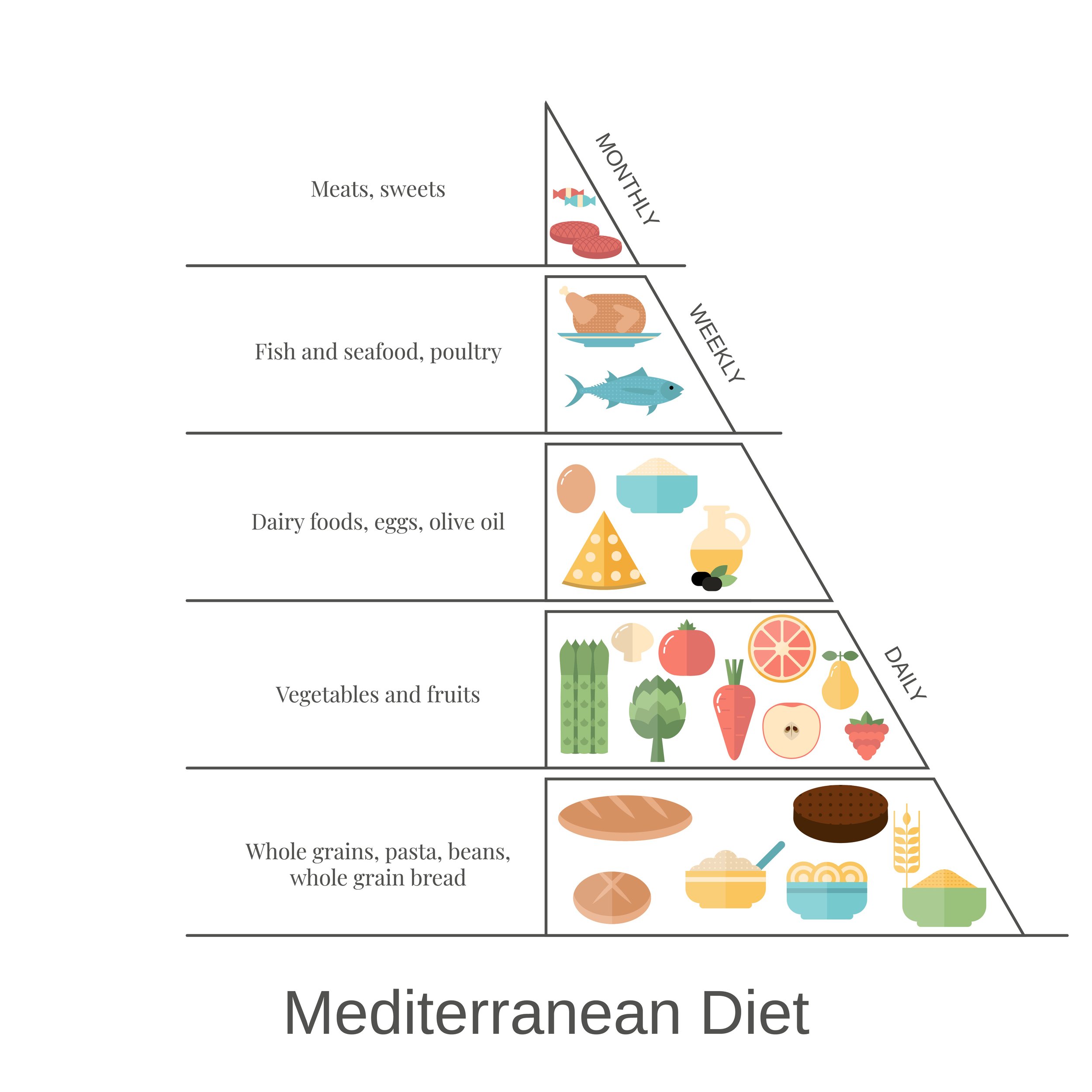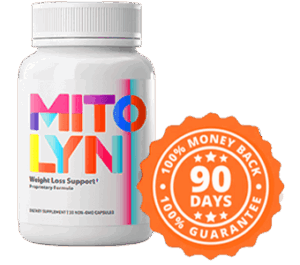Cholesterol management is essential for maintaining heart health, and the Mediterranean diet is a proven way to help lower cholesterol levels naturally. This article will explore how adopting a Mediterranean diet can effectively reduce LDL (bad) cholesterol, promote heart-healthy foods, and offer a holistic approach to cholesterol control. From the role of healthy fats such as olive oil to the cholesterol-lowering benefits promoted in Mediterranean foods, we will power dive into the science and lifestyle practicality for better and healthier cholesterol, in support of overall cardiovascular health.
Lowering cholesterol with the Mediterranean diet: A natural approach
Healthy cholesterol levels are central to heart health, and the Mediterranean diet provides a palatable and sustainable solution. The Mediterranean diet is based on the traditional eating habits of people in countries bordering the Mediterranean Sea, who have lower rates of heart disease and longer life expectancy. It focuses on healthy fats, fruits, vegetables, whole grains, and fish-all ingredients that promote cholesterol control and heart health.
Key takeaways about how the Mediterranean diet can help lower cholesterol:
- Heart-healthy foods: The diet is rich in fruits, vegetables, and whole grains that are high in fiber and essential nutrients.
- LDL reduction diet: Emphasizes the reduction of bad cholesterol, or LDL, by consuming healthier fats, fiber, and omega-3 foods.
- Olive oil has immense: Olive oil has immense benefits for cholesterol: the important ingredient of the Mediterranean diet brings the greatest cholesterol-reducing properties.
- These foods, which are Mediterranean diet staples and well-known for their cholesterol-lowering effects, include fish, nuts, legumes, and whole grains.
- Dietary modifications: The Mediterranean diet reduces cholesterol in an easy, maintainable fashion without a very sudden and unpleasant change of life.
The Mediterranean diet: A proven solution for lowering cholesterol
The Mediterranean diet has received much attention for its efficiency in heart health and cholesterol level reduction. It comprises consumption of a nutrient-rich diet, adequate in essential fats, fibers, and antioxidants-all components participating in the regulation of cholesterol.
How the Mediterranean diet lowers cholesterol naturally
Emphasized in the Mediterranean diet, one of the major ways one can lower cholesterol is through the intake of healthy fats, mostly monounsaturated fats and omega-3 fatty acids. This type of fat is also known to improve cholesterol and heart health through:

- Reducing LDL cholesterol: The dietary intake of healthy fats, especially those from olive oil and fatty fish, have been known to reduce LDL cholesterol, the “bad” cholesterol responsible for plaques building in the arteries.
- Increasing HDL cholesterol: It is also known to increase the levels of HDL cholesterol, thereby helping in drawing excess cholesterol out of the bloodstream.
- Supporting a healthy lipid profile: The Mediterranean diet has proved to improve the overall lipid profiles, reducing triglyceride levels, which are another marker of heart disease risk.
By focusing on whole, minimally processed foods, the Mediterranean diet provides a balanced, effective strategy for managing cholesterol without the need for harsh interventions.
Heart-healthy Mediterranean foods for cholesterol management
The Mediterranean diet is highly rich in foods that support good cholesterol levels. Incorporating more of these types of cholesterol-reducing food items into one’s daily meals naturally maintains LDL cholesterol levels and is good for the heart.
Olive oil: The cornerstone of cholesterol control
One of the major components of the Mediterranean diet is olive oil, which is used freely for cooking and dressing salads. Olive oil contains a high percentage of monounsaturated fats that are considered heart-healthy, as they can lower LDL cholesterol. Antioxidants in olive oil also help protect blood vessels from oxidative stress, a factor in cardiovascular disease.
- Olive oil and cholesterol reduction: Different studies indicate that replacement of saturated fat with monounsaturated fat of olive oil may result in a considerable reduction in LDL cholesterol.
- How to Follow through with Olive Oil: It is always best to use extra virgin olive oil, since this variety retains more of the beneficial compounds found in olives.
Cholesterol-lowering mediterranean foods
But besides olive oil, the Mediterranean diet has so many food riches in the service of normalizing cholesterol with high contents of fiber, antioxidants, and healthful fatty acids, which promote a decline in levels of cholesterol.
- Fatty fish: The reason fatty fish is added here is that it is packed with omega-3 fatty acids, which are very good at lowering cholesterol and inflammation. Omega-3s have been known to lower triglycerides, reduce LDL cholesterol, and increase HDL cholesterol.
- Nuts and seeds: Almonds, walnuts, and flaxseeds are rich in healthy fats, fiber, and plant sterols, which help lower cholesterol and thus promote a healthy heart.
- Legumes and beans: The soluble fiber in lentils, chickpeas, and black beans helps to decrease the absorption of cholesterol into the intestines.
- Fruits and vegetables: Green vegetables, including spinach, kale, and tomatoes; fruits such as apples, berries, and citrus fruits, are good sources of antioxidants, vitamins, and fiber-all helping in cholesterol control.
Whole grains: A key ingredient for reducing cholesterol
Whole grains, being one of the staples of Mediterranean diets, confer an enormous amount of wealth as far as heart health is concerned. As opposed to the refined grains, which increase blood sugar and raise cholesterol levels, whole grains, through the content of fiber mainly soluble fiber, lowers cholesterol.

- Examples of whole grains include the following: Brown rice, quinoa, barley, and oats are rich in soluble fiber. The latter was found to reduce LDL cholesterol.
- The role of fiber in cholesterol management: Fiber binds to cholesterol in the digestive system, hence enabling the body to excrete it, hence reducing the overall level of cholesterol.
How the Mediterranean diet supports cholesterol control
The Mediterranean diet is much more than the foods themselves; it is a lifestyle of balance, moderation, and long-term well-being. With heart-healthy Mediterranean meals and the basic way of life the diet entails, one can achieve far better cholesterol control and, therefore, reduce the risk of heart disease.
The role of healthy fats in cholesterol control
The Mediterranean diet is characterized by healthy fats that have a great effect on the regulation of cholesterol levels within the body. Unlike the saturated fat contained in red meat and a lot of processed foods, monounsaturated fats-from foods like olive oil, avocado, and nuts-lower LDL cholesterol with no decrease (or possibly a slight increase) in HDL cholesterol.
- How healthy fats reduce LDL: Healthy fats improve cholesterol metabolism and prevent the buildup of plaque in the arteries, reducing the risk of heart disease.
- Incorporating healthy fats into meals: Replace butter and margarine with olive oil, snack on nuts, and add avocado to salads to ensure a steady intake of healthy fats.
Mediterranean diet for lowering LDL cholesterol
LDL cholesterol is known as the “bad” cholesterol, since it is associated with atherosclerosis, being deposited in the walls of the arteries, raising the risk for heart disease and stroke. More specifically, the Mediterranean diet has a great impact on reducing LDL levels because of its high intake of:
- Monounsaturated fats from olive oil and nuts.
- Omega-3 fatty acids from fatty fish and seeds.
- Soluble fiber from beans, legumes, and whole grains.

Studies have shown that people who follow a Mediterranean diet have lower levels of LDL cholesterol compared to those who follow a standard Western diet.
Mediterranean lifestyle: More than just a diet
The Mediterranean diet is not just nutrition; it’s a way of life. It includes healthy lifestyle habits in general, such as regular physical activities, socializing, and eating in a mindful way, that help maintain heart health and cholesterol levels.
Physical activity and cholesterol control
Exercise is an integral part of the Mediterranean lifestyle. Regular physical activity, such as walking, cycling, or swimming, can help improve cholesterol levels by:
- Raising HDL cholesterol.
- Lowering LDL cholesterol.
- Reducing triglycerides.
By incorporating exercise into your daily routine, you can further enhance the benefits of the Mediterranean diet and improve your lipid profile.
Mindful eating and stress reduction
In Mediterranean cultures, family and friends commonly share meals. This provides time for relaxation and socializing. This pattern of eating, combined with stress-reduction techniques such as meditation or taking time to be outdoors, may help contribute to lower cholesterol levels and improved heart health.
Putting the Mediterranean Diet into practice for cholesterol management
Adopting the Mediterranean diet for cholesterol management doesn’t have to be complicated. Here are some simple tips to get started:
- Incorporate heart-healthy Mediterranean meals: Focus on dishes that include olive oil, fatty fish, whole grains, and a variety of fruits and vegetables.
- Choose the right fats: Use olive oil as your primary cooking fat, snack on nuts, and eat fatty fish at least twice a week.
- Cut back on processed foods: Reduce your intake of refined sugars, processed meats, and unhealthy fats found in fast food and packaged snacks.
- Exercise regularly: Aim for at least 30 minutes of moderate physical activity most days of the week.
Conclusion
The Mediterranean diet is delicious and can be a very sustainable approach to lowering cholesterol and maintaining heart health. Heart-healthy Mediterranean foods combined with healthy fats, along with regular physical activity, can help keep your cholesterol levels in a healthy range and lower your risk for heart disease. You can start now on the path to healthier cholesterol and a healthier heart by adopting the Mediterranean diet’s principles.
Ready to take control of your cholesterol? Explore our collection of heart-healthy Mediterranean recipes and learn how to incorporate these cholesterol-lowering foods into your daily meals. Or, schedule a consultation to develop a personalized Mediterranean-inspired diet plan tailored to your cholesterol management needs.













